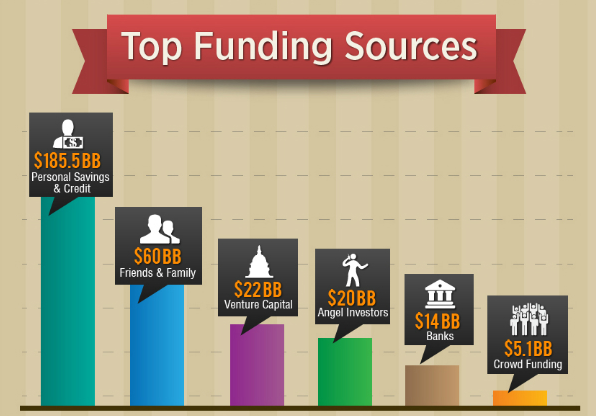Starting a new business venture is an exciting endeavor, but it often requires significant financial resources. While you might have an innovative idea and the determination to make it work, securing the necessary capital can pose a challenge. With numerous funding options available, which one is right for your startup? Let’s explore the pros and cons of traditional loans, angel investors, and crowdfunding to help guide your decision.

TRADITIONAL LOANS: THE ESTABLISHED ROUTE
Traditional business loans, typically secured from banks or credit unions, are the most common way entrepreneurs finance their ventures.
Advantages:
- Predictability: You have a clear idea of your monthly obligations and interest rates.
- No Equity Loss: You retain complete ownership of your business.
- Established Framework: Banks have clear guidelines and procedures.
Disadvantages:
- Collateral Requirement: Many loans require collateral, which puts assets at risk.
- Stringent Criteria: Startups without a track record may find it challenging to get approved.
- Interest Rates: Depending on your creditworthiness, interest rates can be high.
ANGEL INVESTORS: THE PERSONAL TOUCH
Angel investors are high-net-worth individuals who provide capital for a business startup, typically in exchange for ownership equity or convertible debt.
Advantages:
- More Than Money: Many angel investors offer mentorship, guidance, and industry connections.
- Flexible Terms: Deals can often be customized to suit the startup’s needs.
- No Repayments: Unlike loans, you don’t have a monthly repayment obligation.
Disadvantages:
- Equity Sacrifice: You give up a portion of your ownership in the business.
- Potential Meddling: Some investors might want a say in business decisions.
- Finding the Right Fit: It can be challenging to find an investor aligned with your vision.
CROWDFUNDING: HARNESSING THE POWER OF THE MASSES
Platforms like Kickstarter and Indiegogo allow entrepreneurs to raise small amounts of money from a large number of people, usually in exchange for product versions or rewards.
Advantages:
- Market Validation: A successful campaign can prove there’s demand for your product.
- No Equity Loss or Debt: Typically, money is exchanged for rewards or the final product.
- Community Building: Early supporters can become loyal brand advocates.
Disadvantages:
- All or Nothing: Some platforms require you to hit your goal to get funded.
- Platform Fees: A percentage of your funds will go to the platform.
- Pressure to Deliver: Failing to meet promises can harm your reputation.
FACTORS TO CONSIDER WHEN CHOOSING A FUNDING OPTION
- Business Stage: Early-stage startups might find angel investors or crowdfunding more amenable, while more established businesses may prefer traditional loans.
- Amount Needed: If you need a substantial amount, venture capital or sizable loans might be the way to go.
- Control and Ownership: How much decision-making power and equity are you willing to part with?
- Repayment Capability: Can your business handle monthly loan repayments?
Finding the right funding source for your startup is crucial. While traditional loans offer a tried-and-true method, angel investors can provide invaluable mentorship, and crowdfunding can validate market demand. Analyze your business needs, understand the pros and cons of each option, and choose the path that aligns with your startup’s goals and vision. Remember, no matter the funding source, a clear business plan and a compelling pitch are key to attracting capital.




